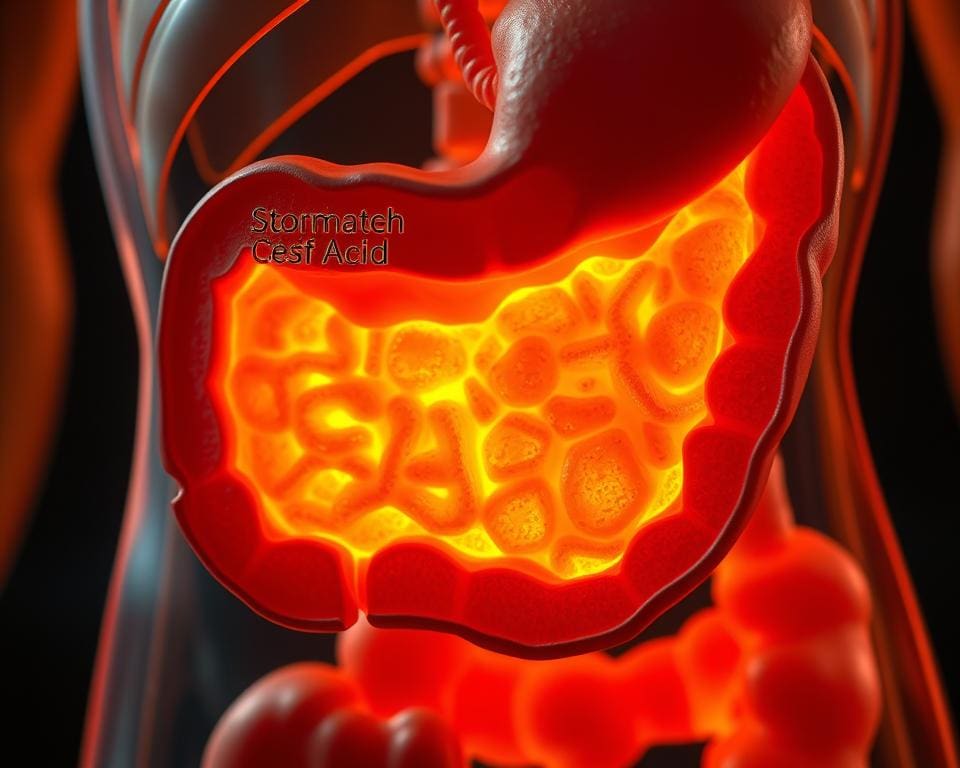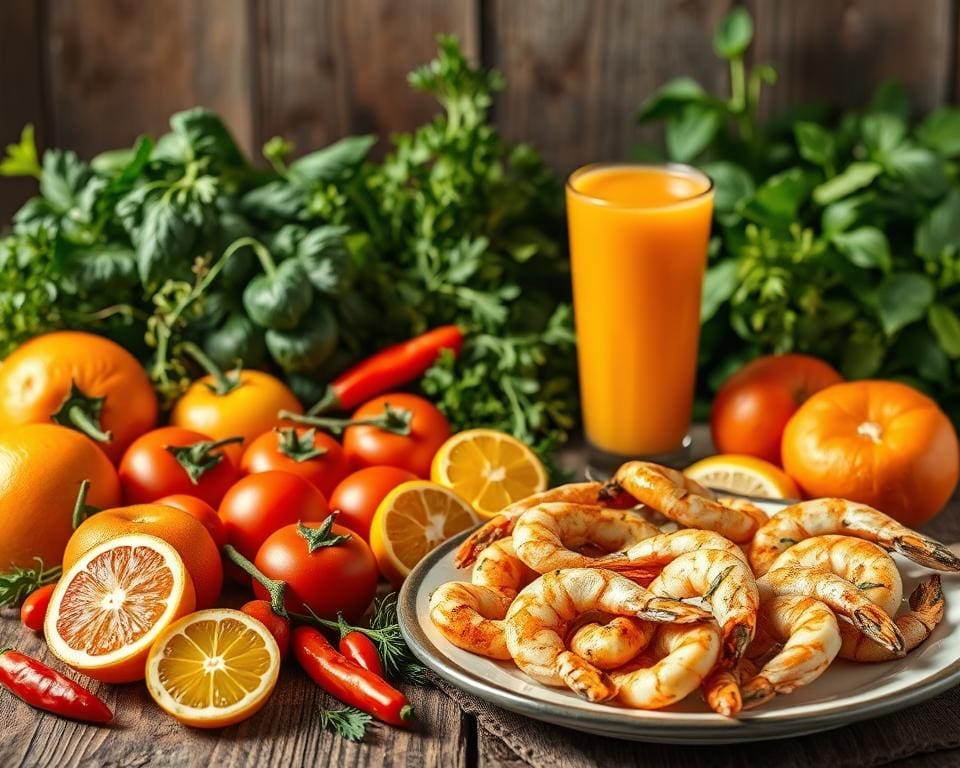Understanding what foods increase stomach acid is vital for those striving to enhance their digestive processes and overall well-being. Stomach acid levels play a crucial role in breaking down food efficiently, eliminating harmful bacteria, and fostering the absorption of essential vitamins and minerals. By focusing on the right dietary choices, one can support the body’s ability to boost gastric health, ensuring a balanced and vibrant digestion. In the following sections, we will explore various foods that can naturally increase stomach acidity, promoting optimal health and vitality.
Understanding Stomach Acid and Its Importance
Stomach acid plays an essential role in the digestive process, significantly impacting how the body processes food and absorbs nutrients. The presence of adequate stomach acid is vital for breaking down food, particularly proteins, and forming chyme, a semi-liquid mixture that moves towards the intestines. Understanding the importance of stomach acidity enables individuals to make informed dietary choices that promote optimal digestion and overall health.
The Role of Stomach Acid in Digestion
The primary function of stomach acid is to facilitate the breakdown of food. Hydrochloric acid, the main component, aids in digesting proteins by unfolding them and enabling enzymes to take action. This process enhances the body’s capacity to absorb nutrients effectively. A balanced level of stomach acid not only supports digestion but also helps maintain a protective barrier against harmful bacteria, ensuring a healthy gut environment.
How Stomach Acid Affects Nutrient Absorption
Stomach acid significantly influences nutrient absorption. Minerals such as calcium, magnesium, and iron rely on an acidic environment for optimal absorption. The presence of sufficient stomach acid promotes efficient nutrient uptake, which is critical for maintaining energy levels and overall wellbeing. Dietary factors such as food choices and meal timing can affect stomach acidity, making it essential to consider these elements for digestive health.

What Foods Increase Stomach Acid
Understanding the types of foods that can enhance stomach acid production is vital for maintaining optimal digestive health. Certain items, especially those rich in protein and beneficial bacteria, play a crucial role in stimulating gastric acid levels.
Foods Rich in Protein
Protein-rich foods are renowned for their ability to boost gastric acid because they require more acidity for effective breakdown. Incorporating the following options into your diet can lead to significant benefits:
- Lean meats such as chicken and turkey
- Fish varieties like salmon and mackerel
- Eggs, a versatile protein source
- Dairy products, including cheese and yoghurt
These foods not only support gastric acid production but also enhance muscle repair and overall health.
Fermented Foods and Their Benefits
Fermented foods offer a dual advantage as they are both probiotic-rich and supportive of gastric acid levels. Regular consumption of items such as:
- Yoghurt enriched with live cultures
- Kefir, a probiotic drink packed with benefits
- Sauerkraut, a tangy side dish full of flavour
- Kimchi, a spicy fermented vegetable dish
These foods can help maintain a balanced gut microbiome while promoting effective digestion. The presence of beneficial bacteria aids not only in the digestion of food but also enhances nutrient absorption, making them essential for anyone looking to improve their stomach health.
High Acidity Diet: What to Include
When considering a high acidity diet, several key components can significantly enhance stomach acid production and overall digestive health. Incorporating specific foods like citrus fruits, vinegar, and spices can create a harmonious balance that promotes gastric efficiency.
Citrus Fruits and Their Effects
Citrus fruits, such as oranges, lemons, and grapefruits, are abundant in citric acid. This natural compound serves as a stimulant for gastric acid production, making these fruits essential for anyone looking to boost their digestive health. Including citrus fruits in your diet not only adds flavour but also supports the body’s ability to process food effectively.
Vinegar and its Role in Gastric Health
Vinegar, particularly apple cider vinegar, has garnered attention for its potential benefits in increasing stomach acidity. Consuming vinegar before meals may help in promoting stomach acid production, facilitating better digestion. Its acidic nature complements a high acidity diet, making it a valuable addition to enhance the body’s natural processes.
Spices That Promote Gastric Acid Production
Additive spices can transform meals while actively promoting stomach acid production. Ginger, black pepper, and cayenne are notable examples. These ingredients do not merely enhance flavour; they also stimulate the secretion of stomach acid, contributing to improved gastric health. Adding these spices to dishes can create a balanced and enjoyable culinary experience.
Foods That Boost Gastric Acid: A Culinary Guide
Incorporating the right ingredients into your kitchen can transform your meals and support stomach health. Embracing acid-forming foods is not just about flavour; it plays a crucial role in digestion and nutrient absorption. This culinary guide will unveil herbs and seasonings that enhance acidity, as well as practical meal ideas to nourish the body.
Herbs and Seasonings to Enhance Flavour and Acidity
Many herbs and seasonings can amplify the natural acidity of dishes. A few noteworthy options include:
- Oregano – Known for its aromatic properties, it aids in digestion while adding a delightful kick to sauces and marinades.
- Thyme – This herb is not only versatile but also encourages gastric acid production, making it perfect for soups and stews.
- Rosemary – Its distinct flavour pairs well with roasted meats and vegetables, enhancing both taste and digestive health.
Meals to Incorporate for Optimal Stomach Health
Crafting meals that support stomach health can be both enjoyable and nourishing. Consider the following suggestions to boost your culinary repertoire:
- Protein-rich salads featuring grilled chicken or beans, topped with a lemon vinaigrette, stimulate digestion and provide necessary nutrients.
- Spicy stir-fries with vibrant vegetables and a dash of vinegar elevate flavour while contributing to improved gastric function.
- Vinegar-based dressings can enhance the acidity of any dish, making salads and roasted vegetables not only more enjoyable but also beneficial for stomach health.
Acidic Food Intake: Caution and Balance
While an increase in stomach acid can be advantageous for digestion, maintaining a cautious and balanced approach is essential. Understanding the triggers for gastroesophageal reflux can significantly improve your well-being. Certain foods and beverages may exacerbate this condition when consumed in excess, leading to discomfort.
Gastroesophageal Reflux Triggers to Avoid
Identifying common culprits can make a substantial difference in managing symptoms. Avoiding the following items is advisable:
- Excessive caffeine, often found in coffee and energy drinks.
- Chocolate, known for its relaxing effect on the lower oesophageal sphincter.
- Highly acidic foods, such as citrus fruits and tomatoes, particularly when eaten in large quantities.
Recognising Symptoms of High Acidity
Being aware of symptoms of high acidity can help you monitor your body’s reactions effectively. Look for signs such as:
- Heartburn, a burning sensation in the chest after eating.
- Regurgitation of sour or bitter-tasting acid into the throat.
- Discomfort or pain in the stomach region.
Understanding these symptoms aids in determining when to modulate your acidic food intake for improved gastric health.
Dietary Factors Influencing Stomach Acidity
Numerous dietary factors influence stomach acidity, impacting overall digestive health. The timing of meals and eating habits play a crucial role; consuming large meals too quickly can overwhelm the stomach and reduce its ability to produce adequate acid. Mindful eating, on the other hand, allows the body to better regulate gastric secretions, promoting efficient digestion.
Stress levels significantly affect stomach acid production as well. Elevated stress can hinder gastric secretions, leading to discomfort and poor digestion. Incorporating stress-reducing practices, such as regular physical activity and relaxation techniques, can support the body in maintaining balanced acidity levels.
Moreover, the consumption of processed foods and refined sugars should be approached with caution. These substances are known to negatively impact stomach health and may disrupt the body’s natural acidity balance. By prioritising whole, nutritious foods, individuals can enhance gastric secretions and foster a healthier digestive system. Mindful food choices, combined with a holistic lifestyle approach, pave the way for optimal digestive well-being.









